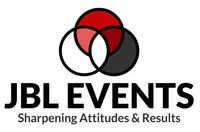Leadership

Leading People Effectively (101)
A customer is anyone you might want to influence to get a particular response of your own making. In other words EVERYBODY is your potential customer. Success requires a calculated approach to blend the right level of rapport, trust, empathy, knowledge and problem-solving skills that match the needs of each unique “customer.” This could be your boss, peers, subordinates, spouse, family…even strangers.
- Examine the communication process for transferring thoughts and ideas
- Understand the complications that lead to miscommunication
- Implement reflective feedback to ensure effective receipt of the messaging
- Use techniques that can turn assumptions into facts
- Choose the words or phrases that trigger positive reactions
- Implement simple tools that warn you of potential conflicts
- Minimize or repair the damage when communication goes awry
Delegating Dynamically (201)
Delegating tasks make it possible for us to maximize group output, develop team members, and provide excellent opportunity to “build your bench” and strengthen relationships through mentoring, demonstration of trust, recognition for accomplishments and cementing bonds. You’ll learn to:
- Take advantage of delegation’s (???) power and benefits
- Explore and overcome the barriers that impede success
- Identify what should and should not be delegated
- Use 10 points that ensure success (plus a secret to secure trust in your abilities)
- How to use the value of recognition to build a strong mentor/protege relationship
Forming Functional Teams (301)
Teams can turn disparate groups of people into highly functional and more productive units. It does not come naturally and requires the building of emotional intelligence and communication skills. You will learn to:
- Define a functional team (although many companies op0erate with team labels, they are NOT teams)
- Understand the four stages of team development and how to move your team to maturity (REDEFINE)
- Create an atmosphere that improves receptivity to communication
- Resolve conflicts to better encourage empathy, understanding and cooperation
- Master your role as mentor/nurturer
Working With Personality/Behavioral Styles (401)
Although everyone is different, there are some commonalities that people share. When better understood, people can get along better and adjust ther styles to improve trust, cooperation and collaboration. You will learn to:
- Compare some of the current, popular assessment tools (e.g. DISC, Myers-Briggs, etc.)
- Learn a quick assessment tool that can provide a roadmap to understand different personality types
- Practice the art of flexing approaches to working with different styles individually (???
Delivering Constructive Feedback (501)
Feedback is the cornerstone of growth. We love to hear positive reactions, yet those are not as impactful to our development as constructive feedback. Sometimes this can be painful to hear, yet it almost always offers us a gift from which to grow. While we are often our own worst critics, observation from those around us tends to be more accurate because we define our impact on others through their perceptions. It is sometimes difficult to hear “criticism, no matter h9ow good the intent. You will learn to:
- Explore the synamics of giving and receiving feedback well.
- Present feedback positively (based on expectations, metrics, perception)
- Address the feedback nightmares– dealing with difficult interactions
- Use the GIFT method to easily map out a feedback script
- Develop the perfect SMART plan for performance improvement
Making Meetings Masterful in Person and Virtually (601)
Meetings are the communication stronghold for team, vital for conveying information and projecting progress. Many of us are subjected to unclear, boring, confusing, disorganized, or non-productive meetings that waste time. You can run efficientm impactful, productive meetings that motivate a team if you learn to incorporate the essential elements. You will learn to:
- Identify and overcome most meeting productivity killers
- Use a meeting checklist to follow a roadmap to success
- Maximize key roles and responsibilities of meeting players
- Deal with chronic people problems (e.g., latecomers) Define lions, tigers & beae
Leading Strategically without Authority (???) (701)
You don’t need to be a boss to get results from others. Building leadership skills at any levek will shaope your like to help you achieve greater satisfaction and an empowered environment. You will explore five simple strategies to master the art of enthusiastic influence. You will learn to:
- Understand the Kouzes and Pozner model of Great Leadership Disciplines
- Model the Way (integrity)
- Inspire a Shared Vision (Direction)
- Encourage the Heart (Recognition)
- Challenge the Process (Change)
- Enable Others to Act (Empower)
- 1. Leading People Effectively (50-mins)
* Old Style approach (Boss) vs New (Leader approach)
Key Focus: Task vs Strategy
Driving Force:
Work & Objectives
Source of Authority: Position vs Relationship of Trust & Support
Communication & Delegation
Accountability
- Choose a leadership style to make Goldilocks smile
- Autocratic, Democratic, Free-rein (dependent on experience & confidence)
L1 + D1 = Coach, L1 + D2 = Confused, L1 + D3 = Abandoned
L2 + D1 = Disengage, L2 + D2 = Supported, L2 + D3 = Uncertain
L3 + D1 = Micromanaged, L3 + D2 = Demotivated, L1 + D3 = Trusted
- 5 Practices of Highly Effective Leaders (Kouzes & Pozner)
- Model the Way (Integrity)
- Enable a Shared Vision (Inspiration)
- Challenge the Process (Innovation)
- Enable Others to Act (Empowerment)
- Encourage the Heart (Validation)
